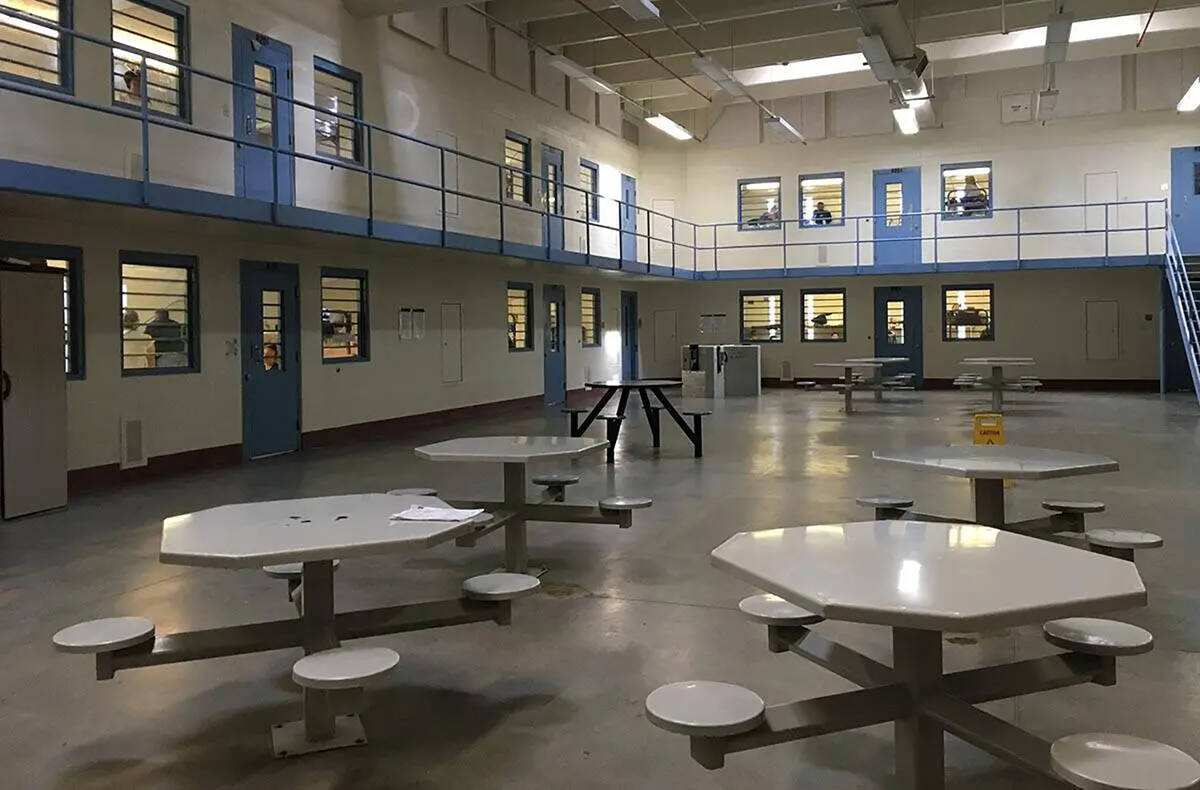Prisoners overcharged for supplies behind bars, NDOC audit reveals
CARSON CITY — A new internal state audit raps the Department of Corrections for overcharging prisoners on supplies and medical co-pays, high overtime costs in the director’s office during the pandemic, and lax oversight on how it assigns state-owned vehicles to staff.
The routine audit by the governor’s finance office also found the department assigned weapons purchases to the wrong cost categories. It recommended changes within the next six months that could save more than $14 million annually, almost all of it arising from reducing overcharges to prisoners.
In its response, included with the audit’s public release last week, the department accepted recommendations calling for it to write regulations on how prisoner supplies are priced, set reasonable co-pays, review its overtime costs and fix the weapons cost accounting.
The audit’s findings and recommendations were reviewed last week at a meeting of the Executive Branch Audit Committee, which includes the state’s top elected officials. Committee members grilled corrections officials on sections of the audit but also defended the department, noting that under-funding by lawmakers has long contributed to the department’s problems, such as staffing shortages and high overtime costs.
“When our governor presents a budget that desires to improve personnel and resources it’s incumbent upon legislators from all over our state to accommodate that,” said Attorney General Aaron Ford, a former state senator.
At the same time, however, Ford sought clarification from department brass on how it charges prisoners for supplies, and what items are supplied for free.
The audit found that the department sets a 10 percent markup on religious items available for purchase by prisoners in commissaries and 40 percent on other items of food, drink, clothing and hygiene. There is no system for determining markups, which fueled an average 37 percent profit margin for what is known as the Offenders Store Fund over the last two years, at roughly $14 million per year.
The markups “may cause some disadvantaged offenders to struggle to purchase hygiene supplies, food, clothing, stamps, and other basic necessities,” auditors wrote. Those inmates with limited funds “must rely on no-charge rations allotted to them by NDOC to meet personal needs because they do not have the means to make purchases.”
Debt owed by prisoners
Citing an outstanding $10 million debt owed by released prisoners for charges such as court fees and medical costs, the auditors recommended setting “a reasonable medical co-pay” for inmates. The department now charges $8, more than twice the national average of $3.47, auditors found. In its audit response, the department said it would propose dropping the copay to $2.
The department also promised to monitor costs regarding the use of vehicles, “excessive”overtime and standby pay for staff in the director’s office. Those things total more than $77,000 annually, more than 40 percent of it to one employee.
But the suggestion that the department was profligate drew an impassioned defense from Corrections Director Charles Daniels at the meeting, as he cited the pandemic’s impact on staffing and operations, including statewide travel to visit facilities when wardens requested it.
“We did all we could to be out there face to face with our staff to ensure that we gave them the attention that they needed,” he said. “For those that seem to imply that there may be something amiss, I challenge anyone to work the schedules we worked. We never took time off,” Daniels said. “The only time we were gone is when we had COVID ourselves.”
“We rose to the occasion and I’m proud of my people. They did stellar work,” he added.
Contact Capital Bureau reporter Bill Dentzer at bdentzer@reviewjournal.com. Follow @DentzerNews on Twitter.


















